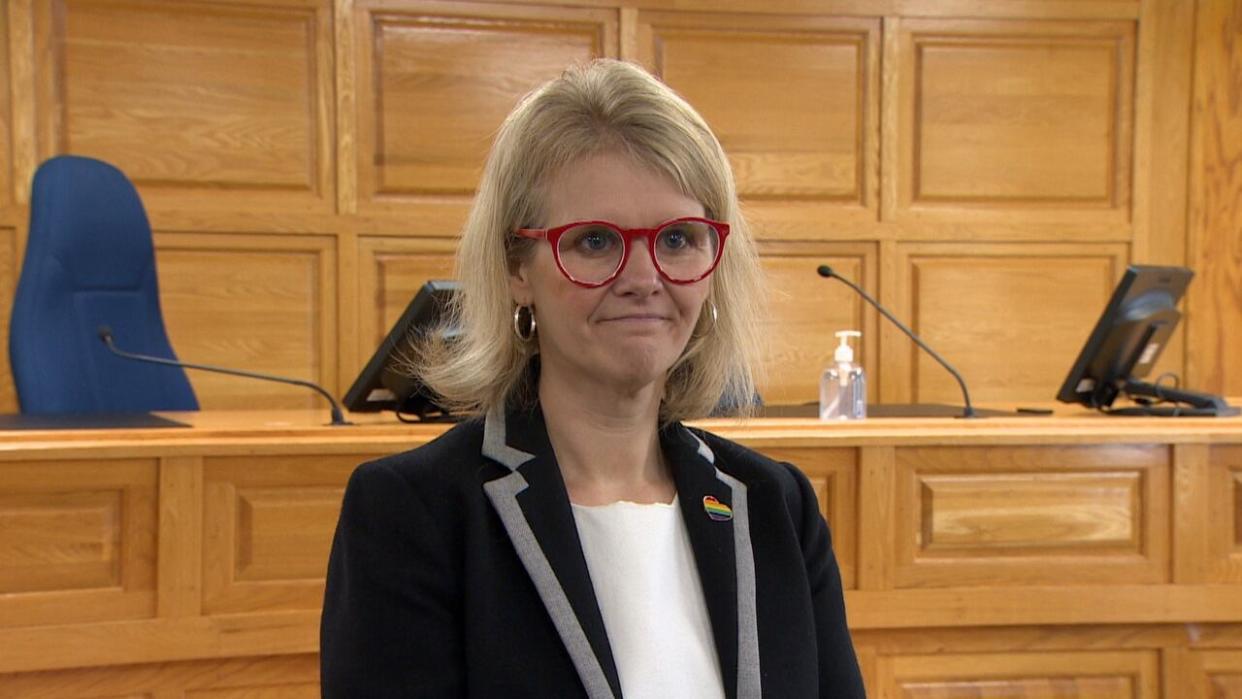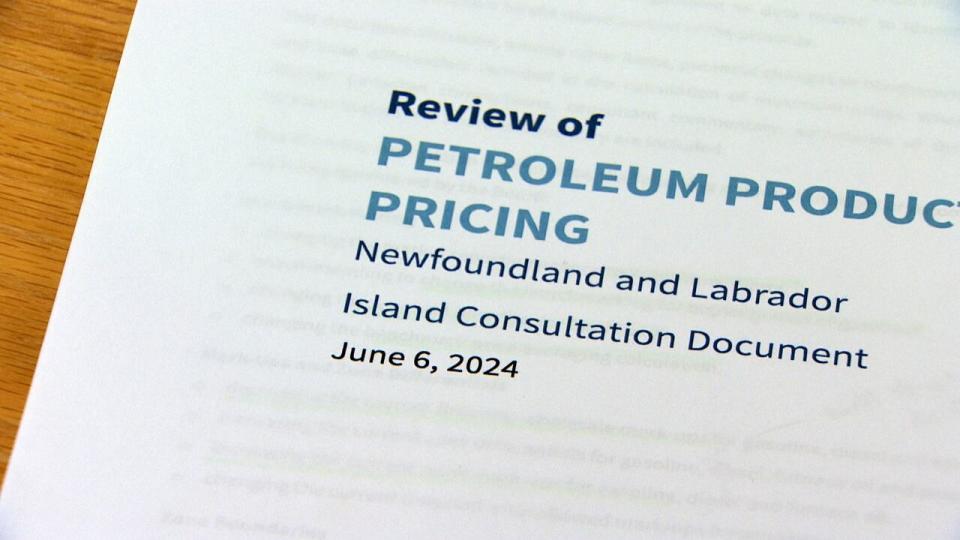Fuel price hikes almost certain, according to new PUB price review plan


Jo-Anne Galarneau, executive director and board secretary of the Public Utilities Board, says the PUB wants public input on proposed changes. (Mike Simms/CBC)
Fuel prices in Newfoundland will increase if the province's Public Utilities Board follows through on proposed changes outlined in a new review of the industry.
It's what Newfoundland and Labrador's energy regulator is calling a "consultation document," and it includes a litany of possible changes for the island. The biggest change on the table will be hiking gas, diesel and furnace oil prices, with higher increases for residents who live far from the larger hubs.
"It's basically the farther away you get from the major metro zones, the more expensive it is to get fuel there," said Jo-Anne Galarneau, executive director and board secretary, Thursday at a news conference at the PUB's office in St. John's to release its petroleum products pricing review.
"Especially if you're not connected by a highway, if you're on an island, supply costs are difficult, and they're not very frequent. Let's be honest, there's a lot of out-migration in rural Newfoundland, so population decline, so there's not as much supply needed and so prices go up when demand goes down."
A separate review for Labrador is expected in the coming weeks.
The report was mandated by the provincial government in 2022 to review the suitability of the pricing mechanism for benchmark fuel prices and the maximum markup from the wholesale price to the retailer to the retail price to the consumer.
Galarneau said the PUB sympathizes with the people the price hikes will impact.
"But the reality is that costs have gone up in everything, from a bag of groceries to supplying gasoline to regions of our province," she said.
The PUB plans to present a final report to the provincial government in the fall, about a year out from the next scheduled general election — or earlier, if Premier Andrew Furey calls one sooner.

The PUB's review of petroleum product pricing has a litany of proposed changes. The biggest change would be hikes to gas, diesel and furnace oil prices. (Mike Simms/CBC)
The current markup on gas on the Avalon Peninsula is 25.93 cents per litre. The proposed changes would add 0.7 cents per litre. But for the people living off Newfoundland's coast — in Fogo and St. Brendan's, for example — the increase would be over five cents.
Benchmark diesel and furnace oil prices would also go up, as would the corresponding retail markups.
The PUB is inviting the public and stakeholders to weigh in before it presents the final report to government. Requests for presentations run until July 15. Letters of comment should be filed by Aug. 16.
"Any increase is going to have consumers worried, and we accept that and we acknowledge that," Galarneau said. "But we are considering this a consultation document. We want public input. The board is, as I always say, we are data-driven, we are evidence-based and we want to make sure the decisions we make and recommend to government are fair and justified."
There are some changes that have to pass through the legislature, but some operational changes don't, such as swapping market reporting agencies to Argus Media from Platts U.S. Market Scan and moving the weekly price adjustments to Friday instead of Thursday.
The benchmark formula is legislated, but the PUB is looking for more leniency.
Galarneau said the proposed price adjustments in the pricing review document can be implemented without government approval.
Download our free CBC News app to sign up for push alerts for CBC Newfoundland and Labrador. Click here to visit our landing page.


